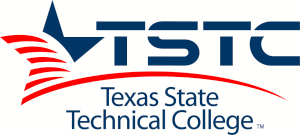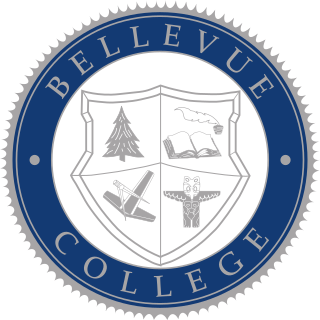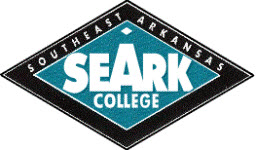Related Research Articles
K–12, from kindergarten to 12th grade, is an American English expression that indicates the range of years of publicly supported primary and secondary education found in the United States, which is similar to publicly supported school grades before college in several other countries, such as Afghanistan, Australia, Canada, China, Ecuador, Egypt, India, Iran, the Philippines, South Korea, and Turkey.

Texas State Technical College (TSTC) is a public community college with 10 campuses throughout Texas. TSTC is the State of Texas's only public multicampus technical college, offering associate degrees and certificates in technical skills and trades. TSTC's headquarters are located north of Waco and are co-located with the Waco campus, the oldest TSTC location and flagship location. TSTC also operates campuses in Harlingen, Marshall, Red Oak, Abilene, Breckenridge, Brownwood, Sweetwater, Williamson County, and Fort Bend County.

The California Community Colleges is "a postsecondary education system" in the U.S. state of California. Despite its plural name, the system is consistently referred to in California law as a singular entity. The system includes the Board of Governors of the California Community Colleges and 73 community college districts. The districts currently operate 115 accredited colleges. The online college Calbright College is not accredited. The California Community Colleges is the largest system of higher education in the United States, and third largest system of higher education in the world, serving more than 2.1 million students.
The Illinois Community College System consists of 39 public community college districts, composed of 48 community colleges and one multi-college center where 3 of the community colleges offer additional classes. Thirty-seven of the districts have a single college; two districts are multicollege. Since July 1990, the entire state has been included within community college district boundaries.
Southern Arkansas University Tech is a public community college in Calhoun County, Arkansas.

Bellevue College (BC) is a public college in Bellevue, Washington. It is the largest of the 34 institutions that make up the Washington Community and Technical Colleges system and the third-largest institution of higher education overall in the state.

Community College of Denver (CCD) is a public community college in Denver, Colorado. The main campus is at Auraria Campus and it has two other locations in the Denver metropolitan area. CCD focuses on underserved, first-generation, and minority students.

North Central State College is a public community college in Mansfield, Ohio. It is located on the 644-acre (261 ha) campus of The Ohio State University at Mansfield. NCSC offers associate degrees and certification programs in a number of career fields including business, computers, engineering, health science and public service, technology, and workforce development.

The Oklahoma State Regents for Higher Education is the agency of the government of Oklahoma that serves as the governing body of the Oklahoma State System of Higher Education, which is the largest provider of higher education in the state of Oklahoma. The State System consists of all institutions of higher education in Oklahoma that are supported by direct legislative appropriations from the Oklahoma Legislature.

The Florida College System, previously known as the Florida Community College System, comprises 28 public community colleges and state colleges in the U.S. state of Florida. In 2013-14, enrollment consisted of more than 813,000 students. Together with the State University System of Florida, which includes Florida's 12 public four-year universities, it is part of Florida's system of public higher education.
In the United States, community colleges are primarily two-year public institutions of tertiary education. Community colleges also offer remedial education, GEDs, high school diplomas, technical degrees and certificates, and a limited number of 4-year degrees. After graduating from a community college, some students transfer to a four-year college or university to continue their studies. Community college is tuition free for selected students in 47 states, often under the name College Promise. Most community college instructors have advanced degrees, but serve as part-time low wage employees.

Mark Hass is an American politician from the US state of Oregon. A Democrat, he was the representative for District 14 in the Oregon State Senate from November 21, 2007, until January 10, 2021. He sought the office of Oregon Secretary of State in 2020.
The Kentucky Council on Postsecondary Education coordinates change and improvement in Kentucky's postsecondary education system as directed by the Kentucky Postsecondary Education Improvement Act of 1997. The Council is a statewide coordinating agency with sixteen members: fourteen citizens, one faculty member and one student appointed by the Governor; the Commissioner of Education is an ex officio member.

Portland Bible College (PBC) is a four-year Bible college in Portland, Oregon, United States that offers theological and church ministry degrees. It was founded in 1967 and is associated with Mannahouse Church, which is associated with Ministers Fellowship International. The campus is adjacent to Mannahouse Church on Rocky Butte in northeast Portland.
The Mississippi Community College Board (MCCB), formerly the Mississippi State Board for Community and Junior Colleges (SBCJC), is a statutory coordinating board tasked with oversight of the public community and junior colleges of the state of Mississippi.
The Washington State University (WSU) Energy Program is a self-supported department within the University. The program staff include engineers, energy specialists, technical experts, software developers, and research librarians. The main office is located in Olympia, Washington, with a satellite office in Spokane, WA.

Southeast Arkansas College (SEARK) is a public community college in Pine Bluff, Arkansas. Formerly a vocational-technical school, the state legislature designated the school as a college in 1991 with the name Pines Technical College. It acquired its current name in 1998.
Renton Technical College is a public community college in Renton, Washington. The college offers bachelor's degrees, associate degrees and certificates of completion in professional-technical fields.

The Oregon Higher Education Coordinating Commission is a volunteer state board established in 2011 in the U.S. state of Oregon, with responsibilities for advising the governor, the legislature and the Chief Education Office on statewide postsecondary education policies and funding. The fifteen-member commission has authorities for "development of biennial budget recommendations for public postsecondary education in Oregon, making funding allocations to Oregon's public community colleges and public universities, approving new academic programs for the public institutions, allocating Oregon Opportunity Grants, authorizing degrees that are proposed by private and out-of-state (distance) providers, licensing private career and trade schools, overseeing programs for veterans, and additional legislative directives".
References
- ↑ "Community College Act of 1967" (PDF).
- ↑ "RCW 28B.50.090: College board — Powers and duties". Washington State Legislature.
- ↑ "RCW 28B.50.096: Cooperation with workforce training and education coordinating board". Washington State Legislature.